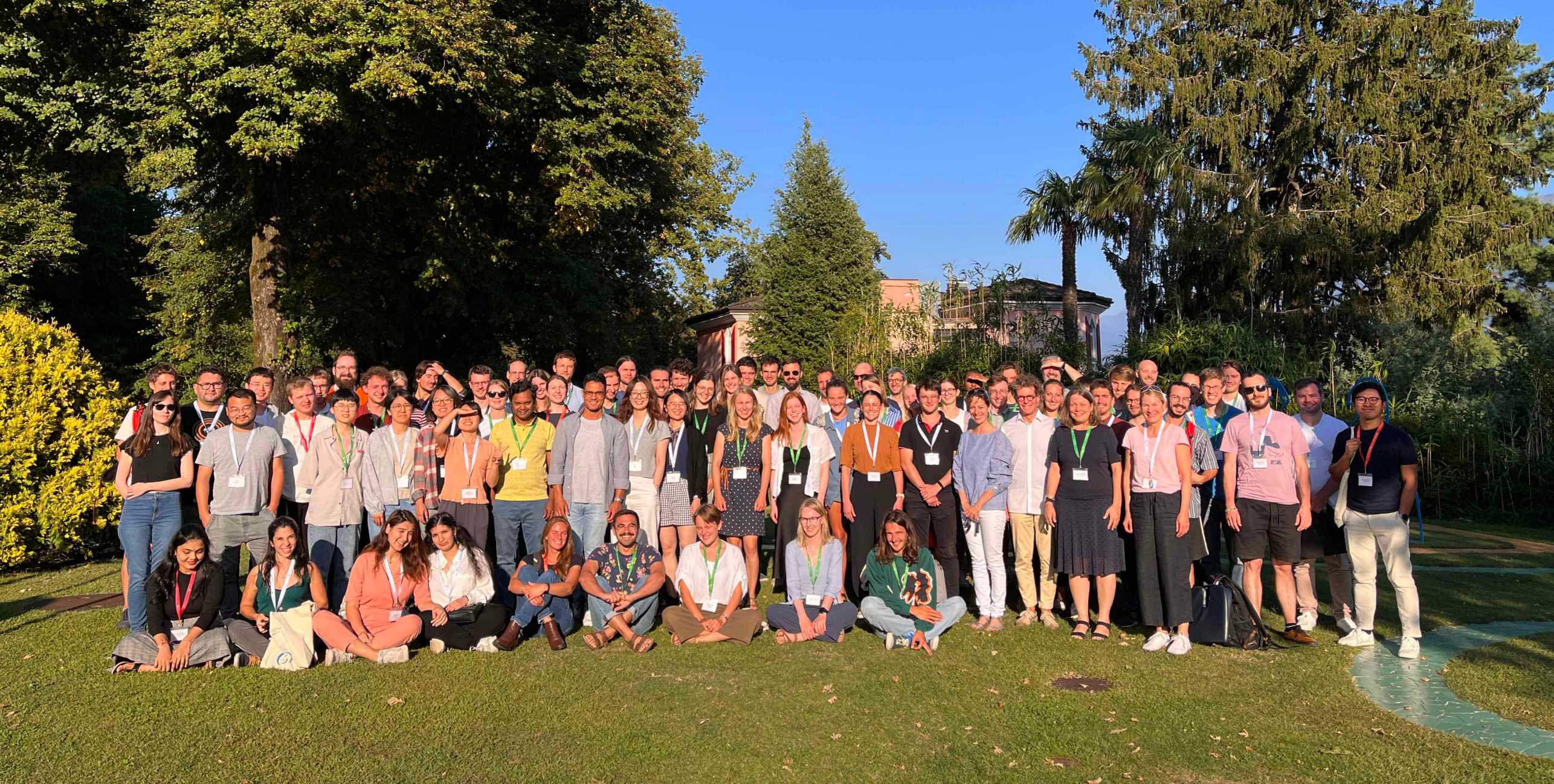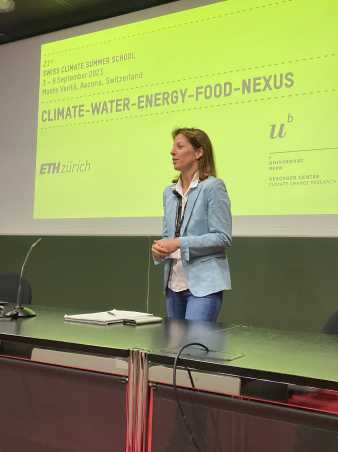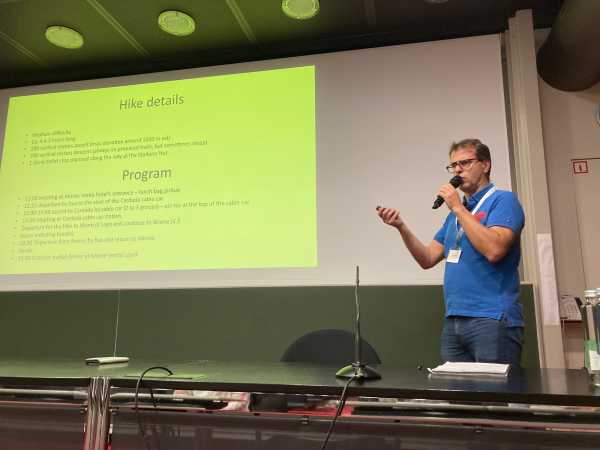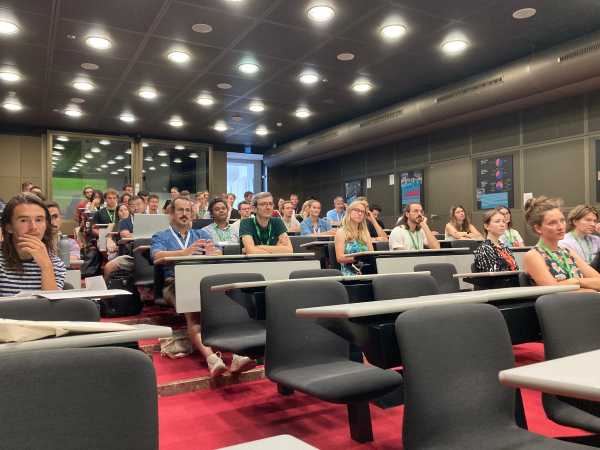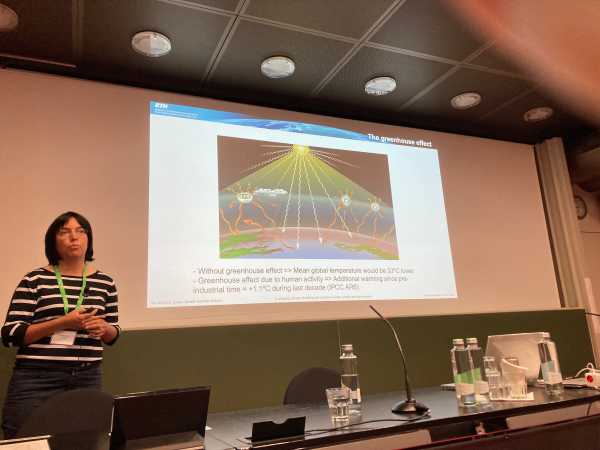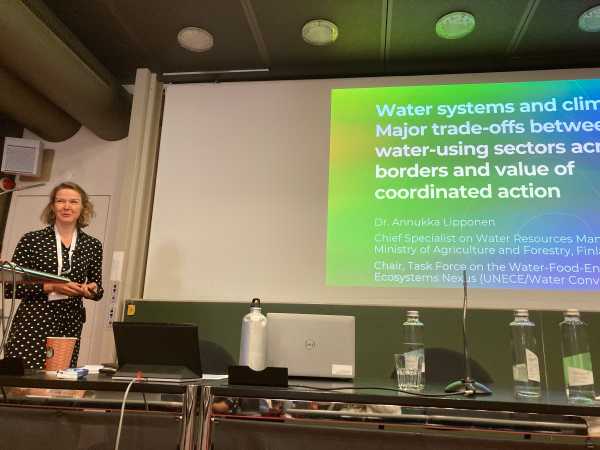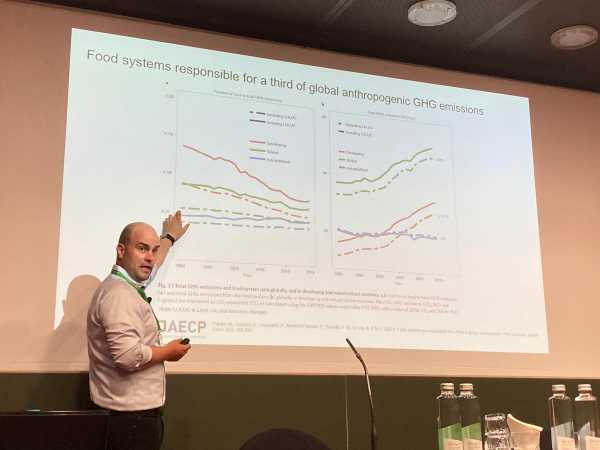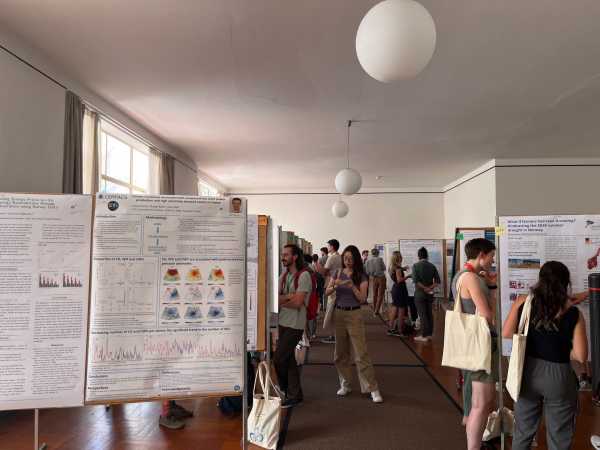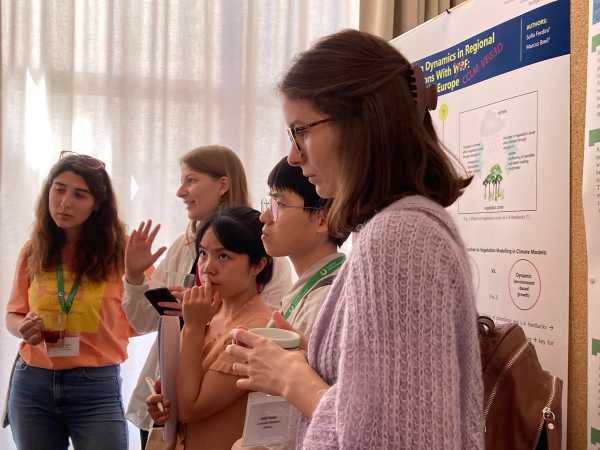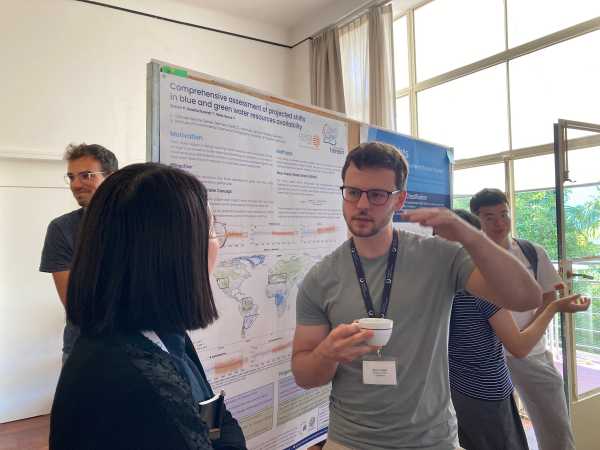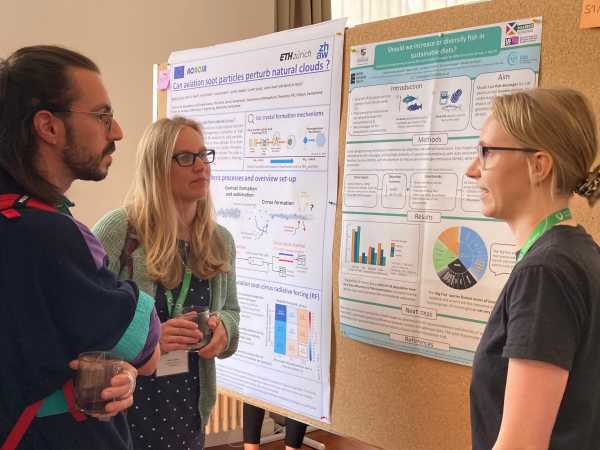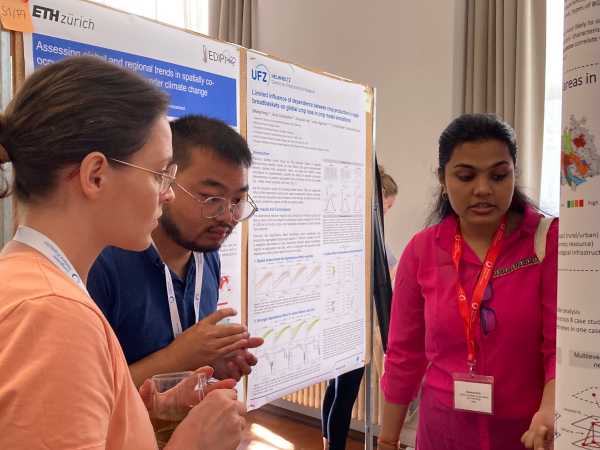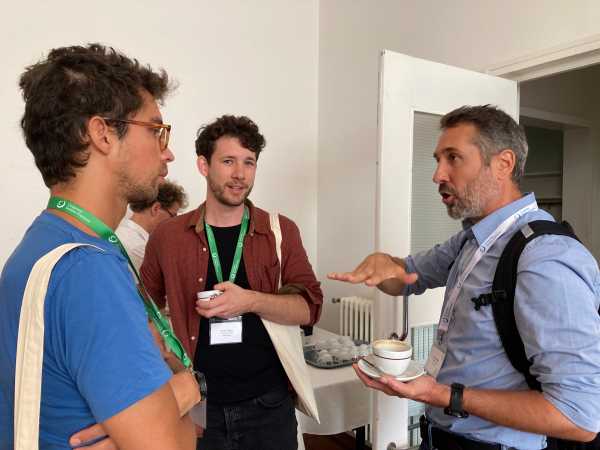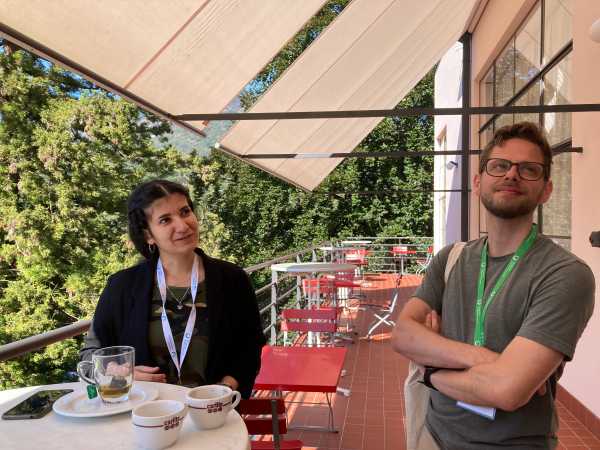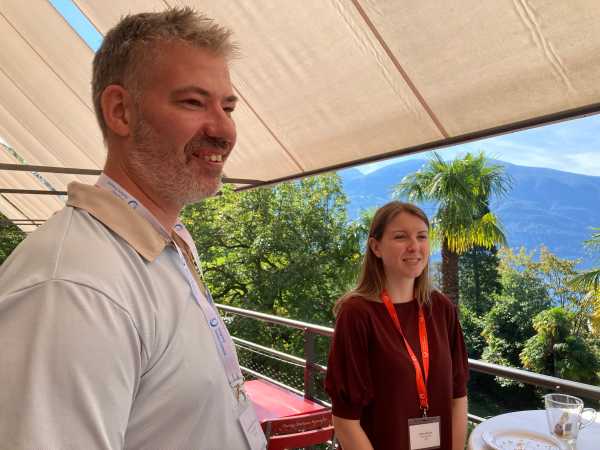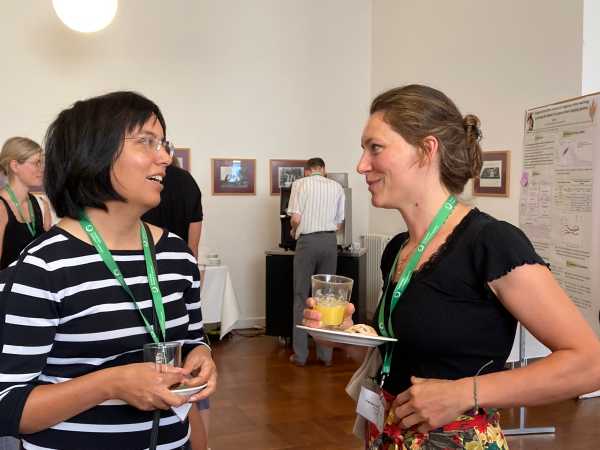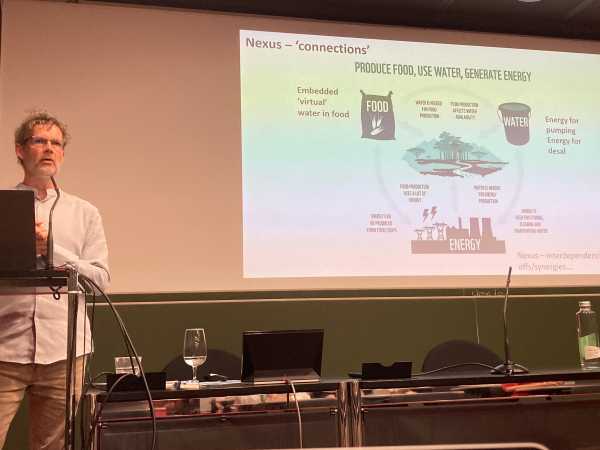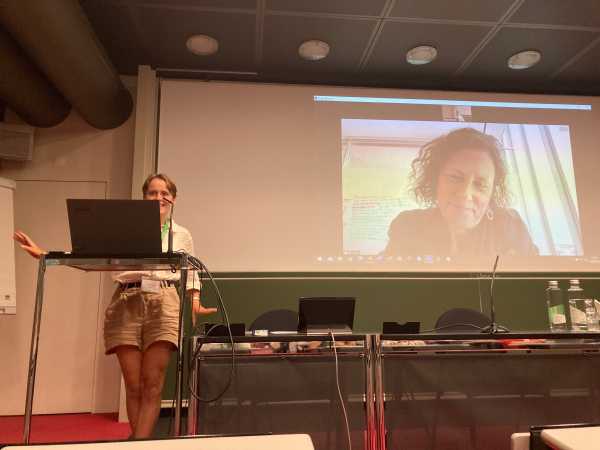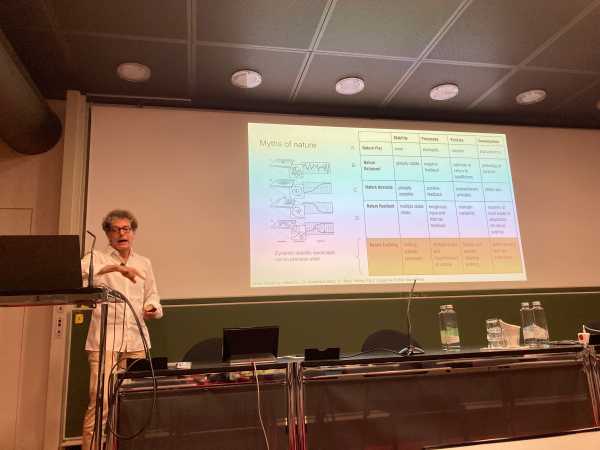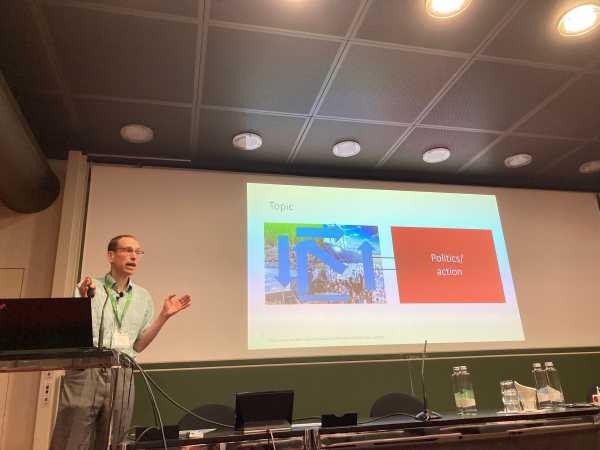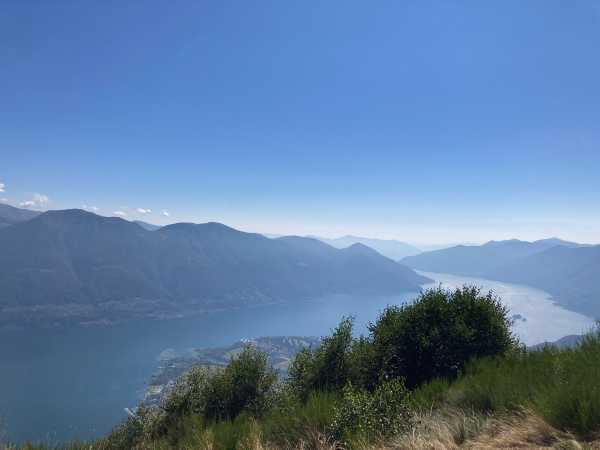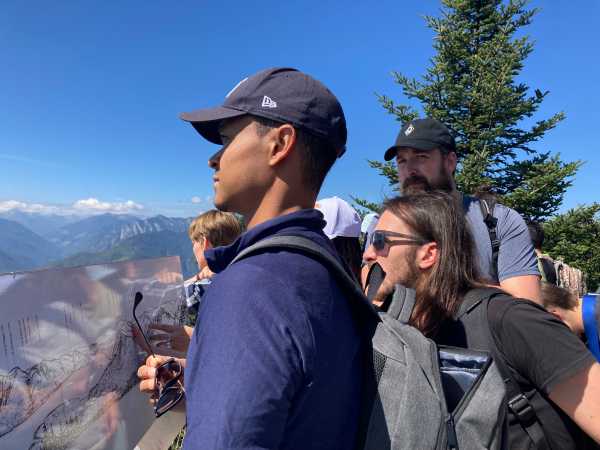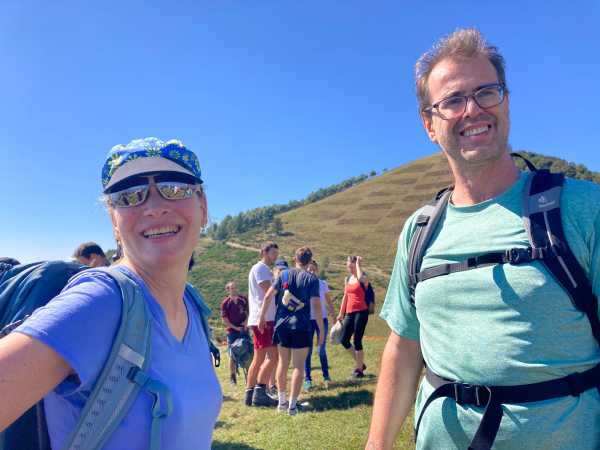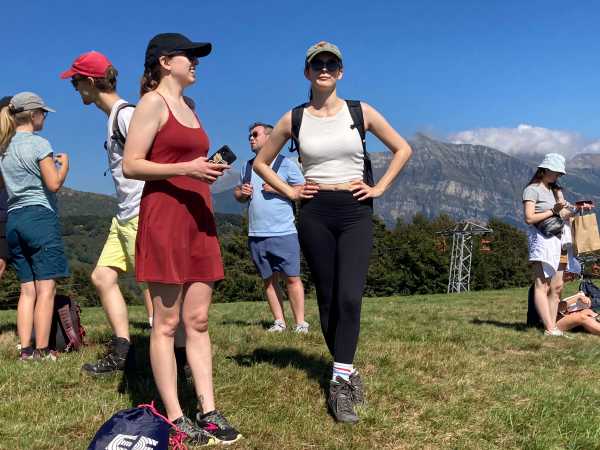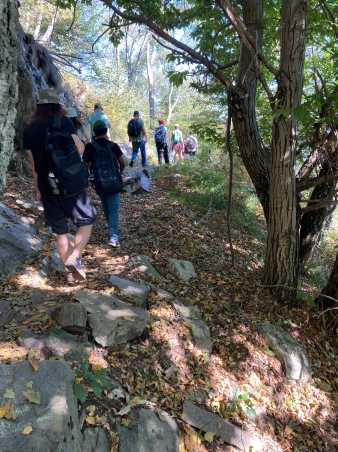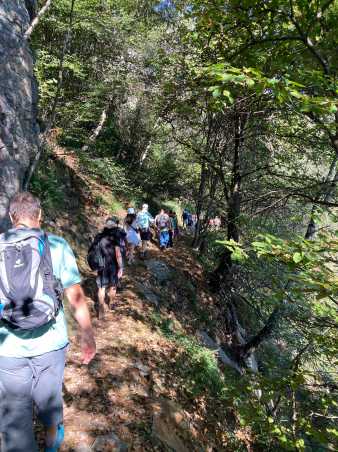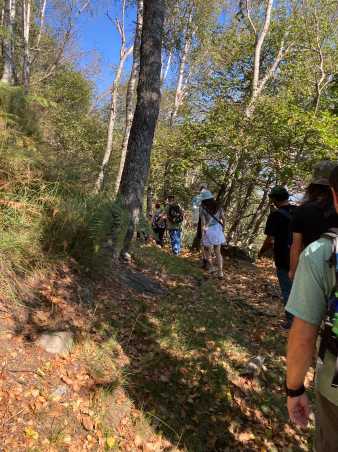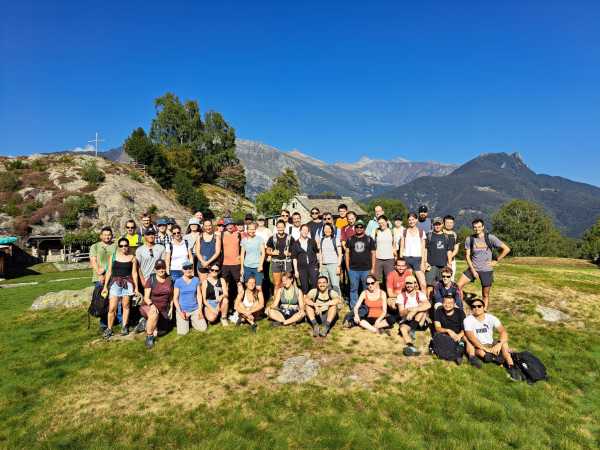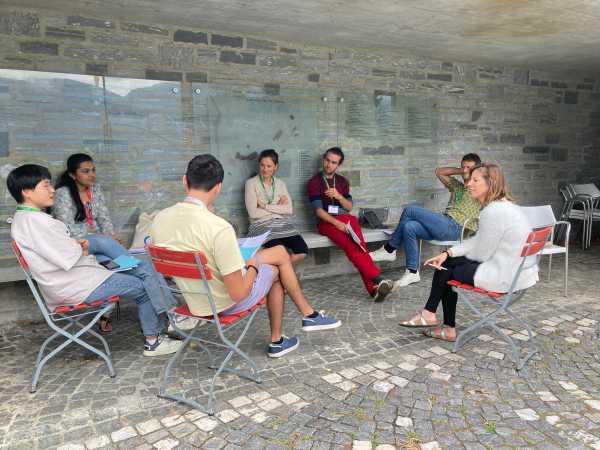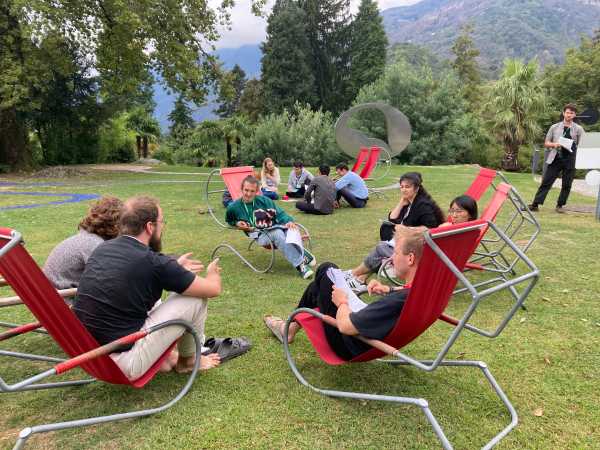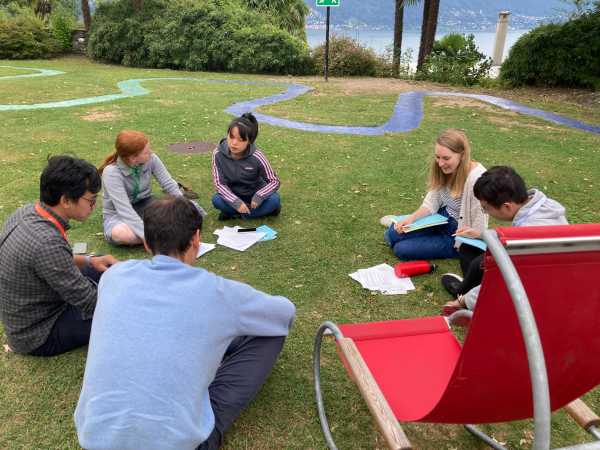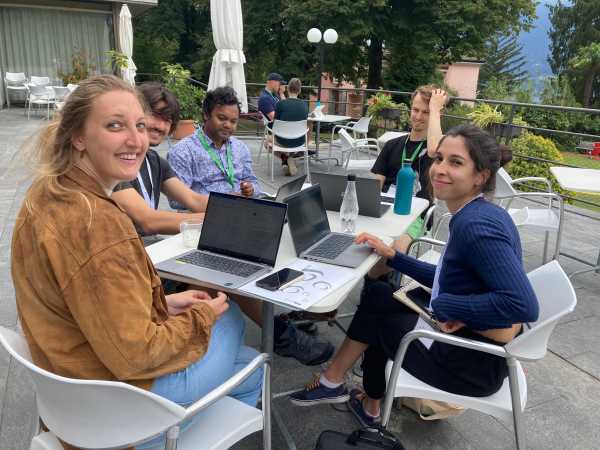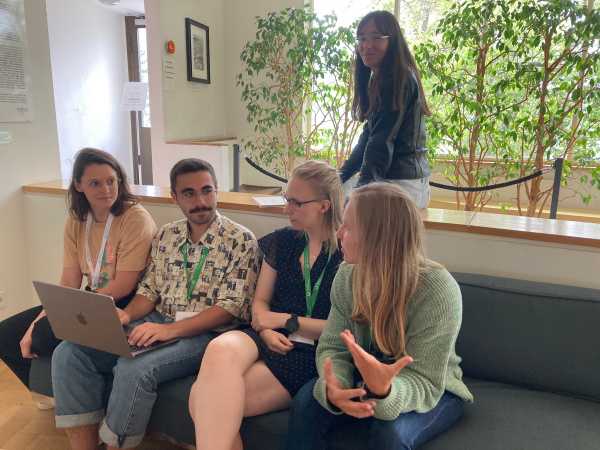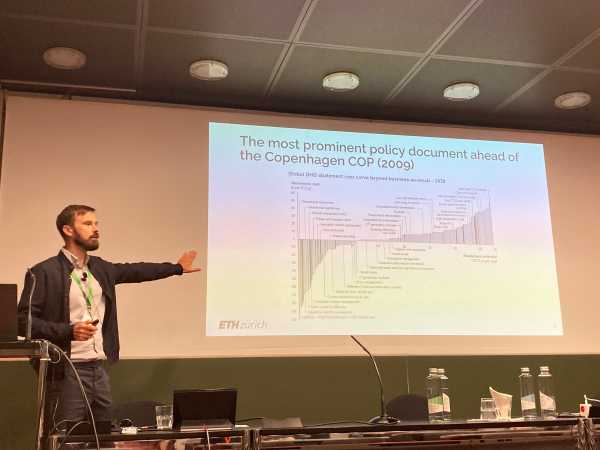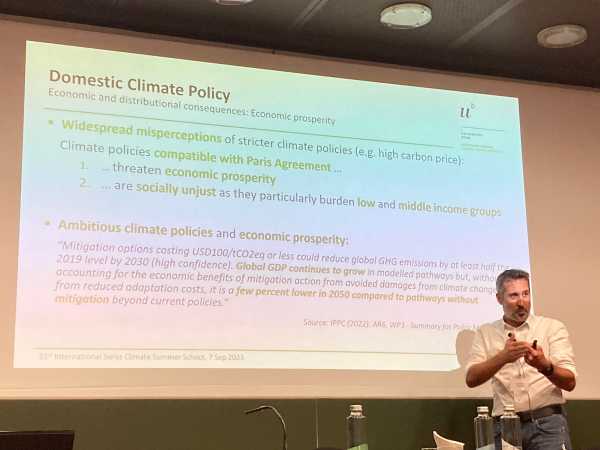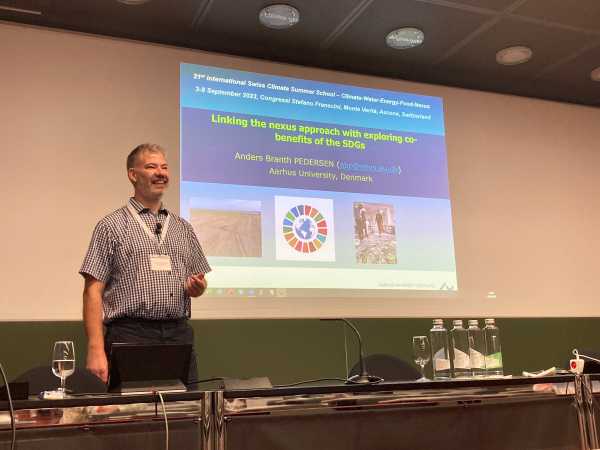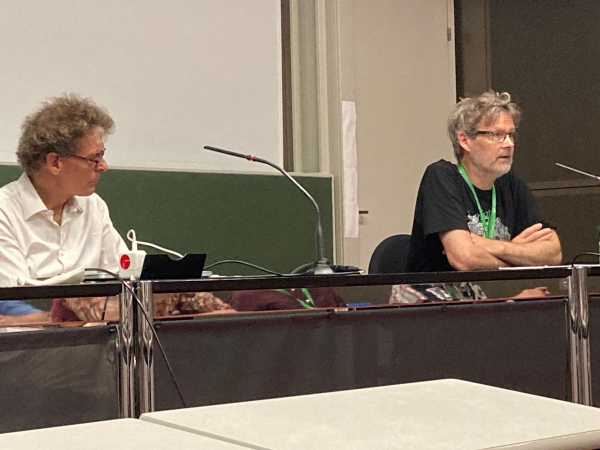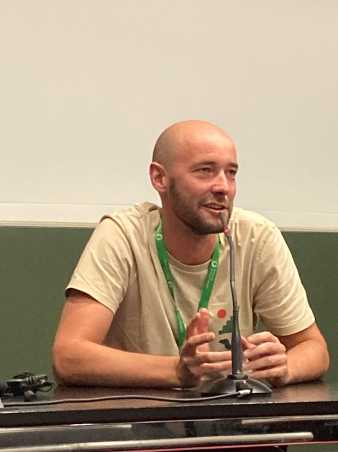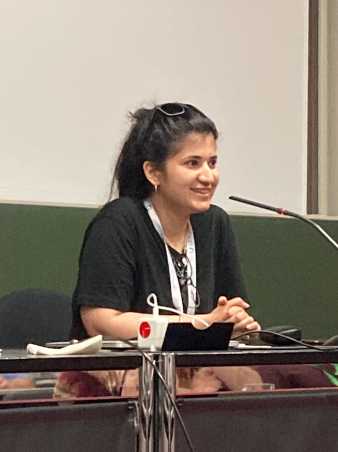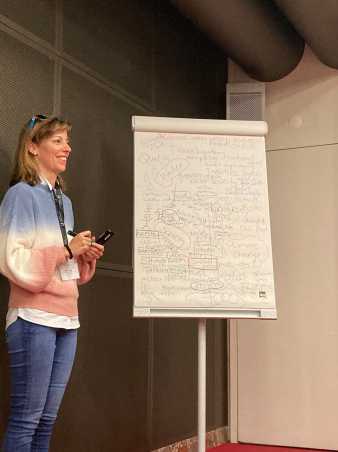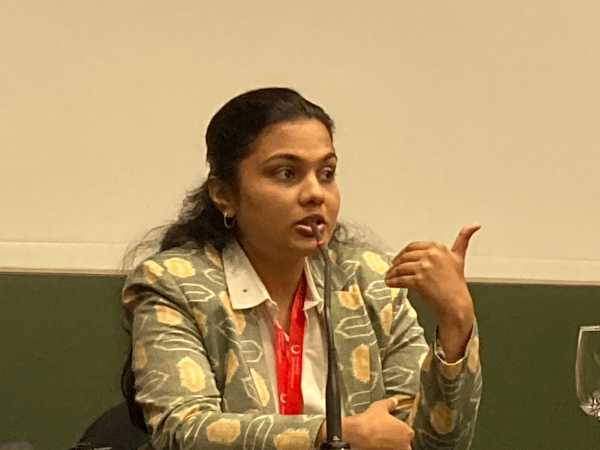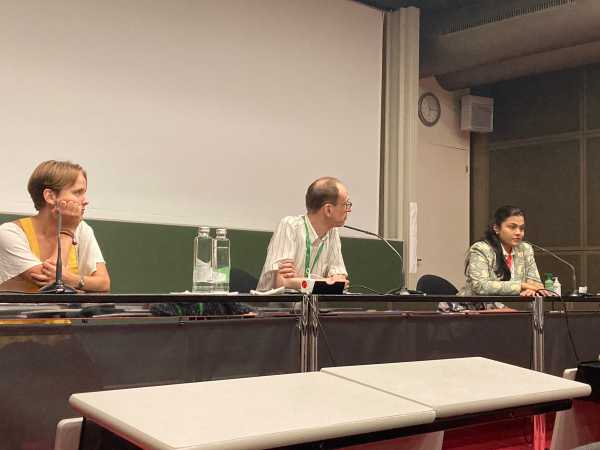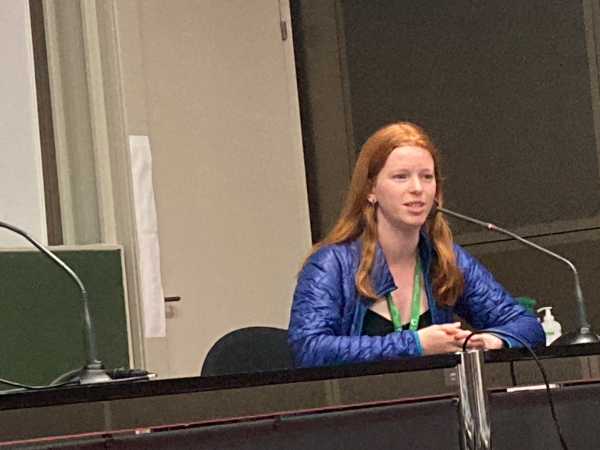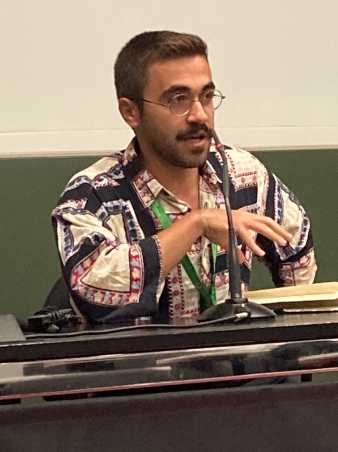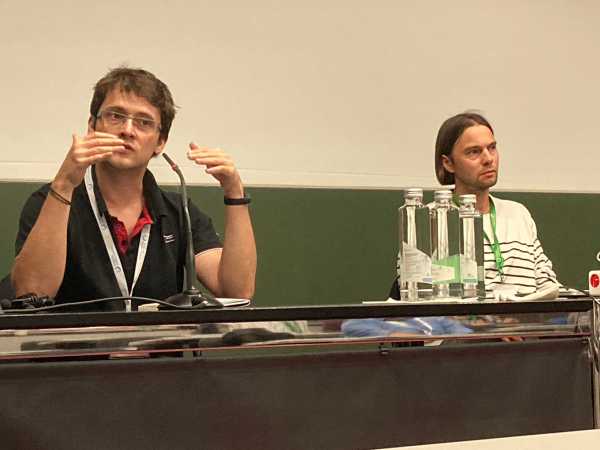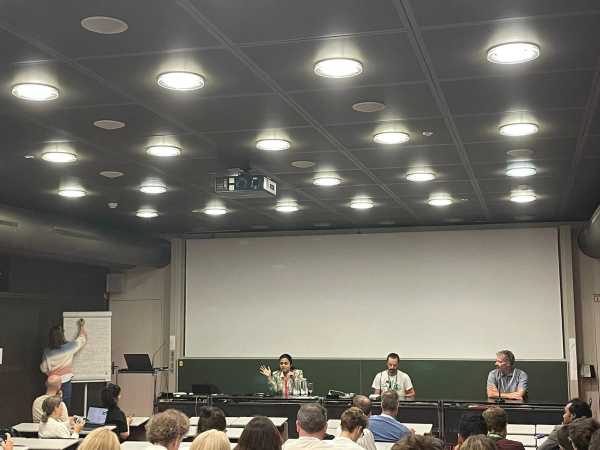Swiss Climate Summer School 2023 on the "Climate-Energy-Water-Food-Nexus" successfully concluded
The 21st Swiss Climate Summer School has been successfully concluded after a week of exciting keynote lectures, workshops, lively poster sessions, and a concluding round table.
Since 2002, the Swiss climate research community has been committed to sustained education of young researchers in its field, and to ensure a long-term investment in the future generation of young competitive climate researchers. The Swiss Climate Summer School is jointly organised by the Center for Climate Systems Modeling (C2SM, based at ETH Zurich) and the external page Oeschger Centre for Climate Change Research (OCCR, based at the University of Bern) on an annual basis.
This year's school, the 21st Swiss Climate Summer School, took place at Monte Verità in Ascona, Switzerland, from 3 - 8 September 2023 and focused on the topic of the "Climate-Water-Energy-Food-Nexus". In this highly interdisciplinary school aimed at early stage researchers, the topic of climate change was bridged with sustainable development goals strongly focusing on social, economic, and humanity aspects.
68 participants were offered a comprehensive program that included 12 keynotes lectures given by high-profile national and international lecturers, four workshops, poster sessions, and a concluding round table.
The program included the following lectures:
- external page Prof. Karin Ingold, external page University of Bern, Introduction to the Climate-Energy-Water-Food Nexus
- Prof. Sonia Seneviratne, ETH Zürich, A changing climate: How it is modelled, and what are the implications for water, energy and food systems
- external page Dr. Annukka Lipponen, external page Ministry of Agriculture and Forestry, Finland, Water systems and climate: Major trade-offs between water-using sectors across borders and value of coordinated action
- external page Prof. Rachael Garrett, external page University of Cambridge, UK, Local land use decisions and their global impact
- Prof. Robert Finger, ETH Zürich, Climate change, extreme weather events, and implications for agricultural and food systems
- external page Prof. Jessica Fanzo, external page Columbia University, USA, Can fixing dinner fix the planet?
- Prof. David N. Bresch, ETH Zürich, Panarchy – Towards Transformational Resilience
- external page Prof. Claus Beisbart, external page University of Bern, Better safe than sorry about the nexus: The precautionary principle and its impact on the nexus approach
- Prof. Tobias Schmidt, ETH Zürich, Low carbon energy innovation: drivers and potentials
- external page Prof. Ralph Winkler, external page University of Bern, Climate Policies for Net-Zero GHG-Emissions on a domestic and international level
- external page Prof. Anders Branth Pedersen, external page Aarhus University, Denmark, Linking the nexus approach with exploring co-benefits of SDGs
Speakers as well as participants fed back very positively about the contents of the educational program, the motivation, enthusiasm and atmosphere during the discussions after the lectures and at the poster sessions. Certainly, the beauty and sublime aura of Monte Verita with its view of Lake Maggiore also contributed to the overall atmosphere.
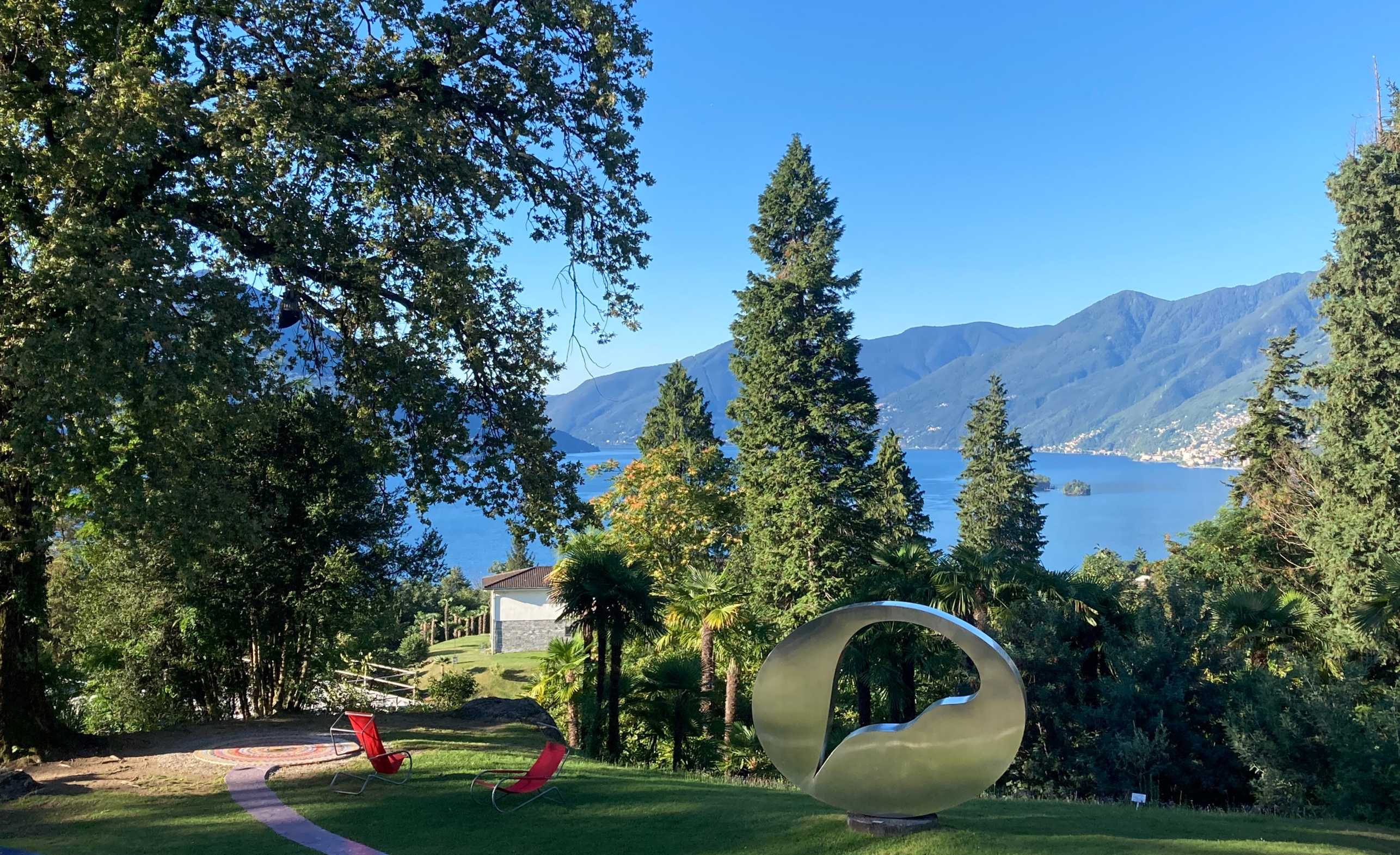
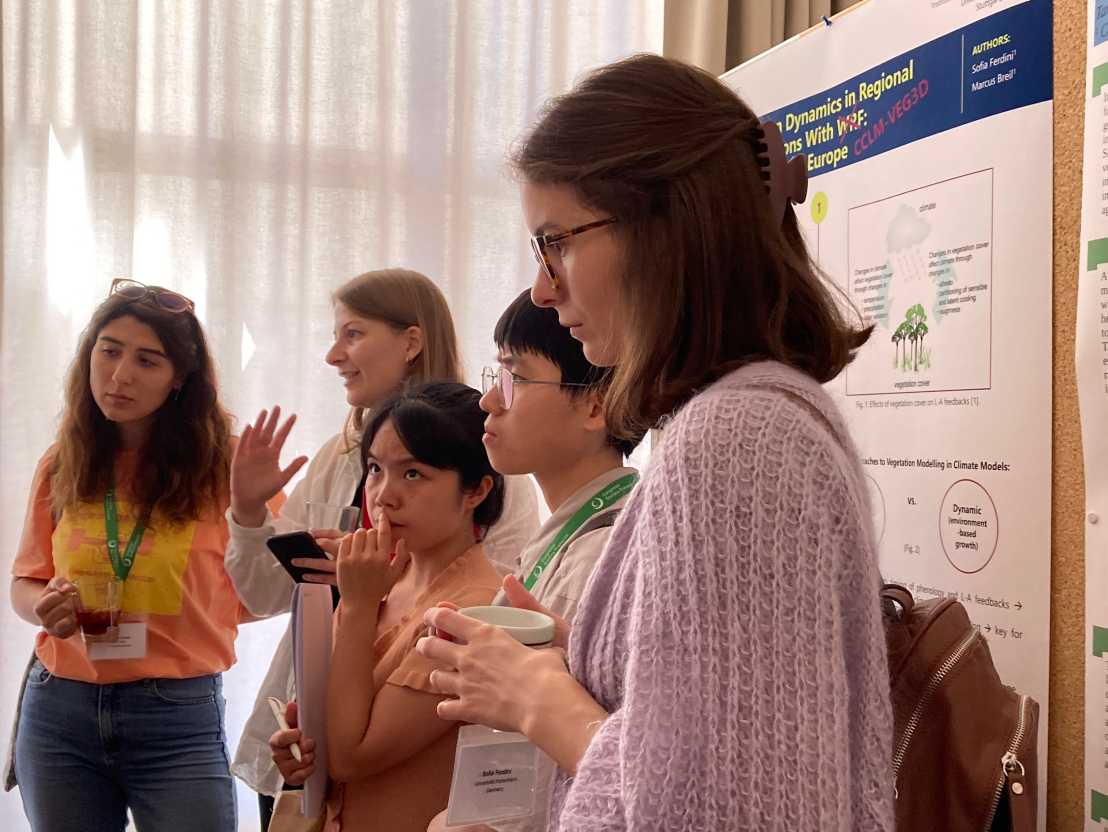
Throughout the week, participants showcased their research through scientific posters, which covered a broad range of topics from climate (change), food livelihood, agricultural economics, political and social sciences, humanities, and more. Five poster sessions provided a broad opportunity for the early stage researchers to discuss and obtain feedback on their work from both peers and lecturers, of which ample use was made in lively discussions in the poster hall.
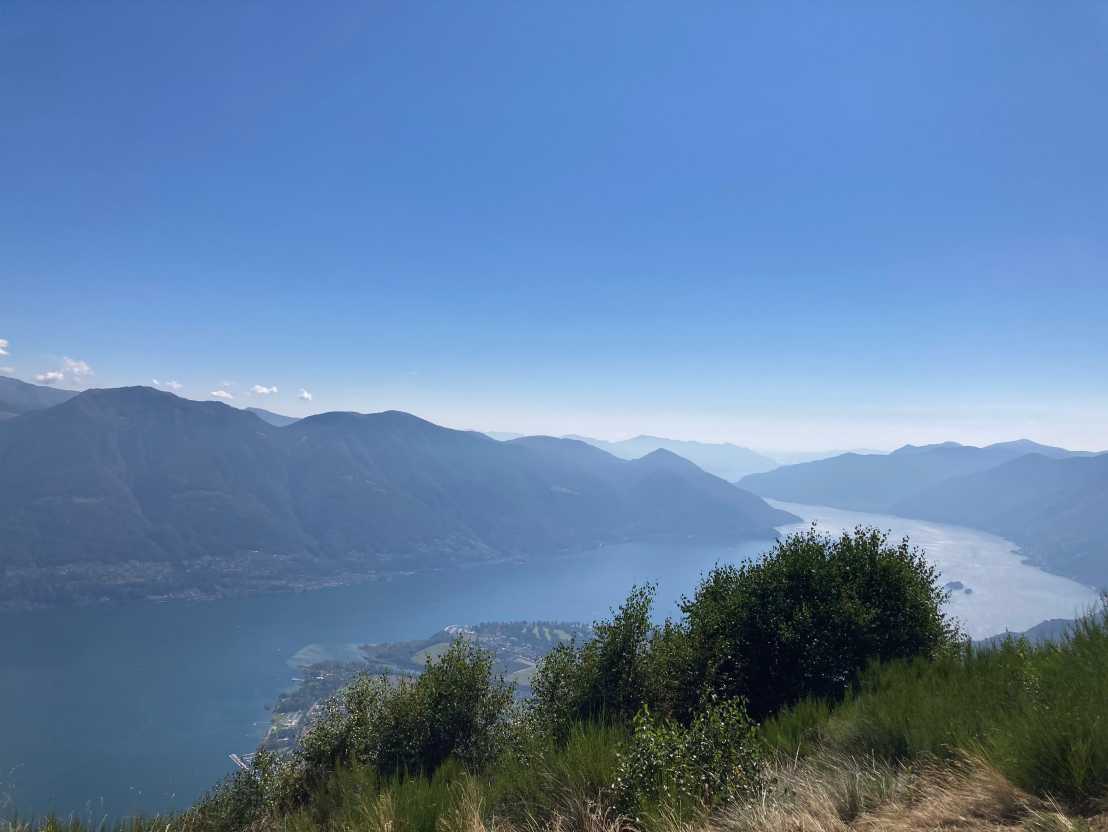
A highlight of the week and a well-deserved break from the scientific programme was the excursion to Monte di Lego, with a detour to the free-floating Cardada viewing platform. The hike led the motivated group up to the summit and then down to Brione through slightly autumnal woodland and repeatedly beautiful viewpoints of the lake over the typical stony ground of the Ticino with many natural steps. The conference dinner in the evening took place in a good-humoured mood in the form of an outdoor barbecue on the railing of Monte Verità.
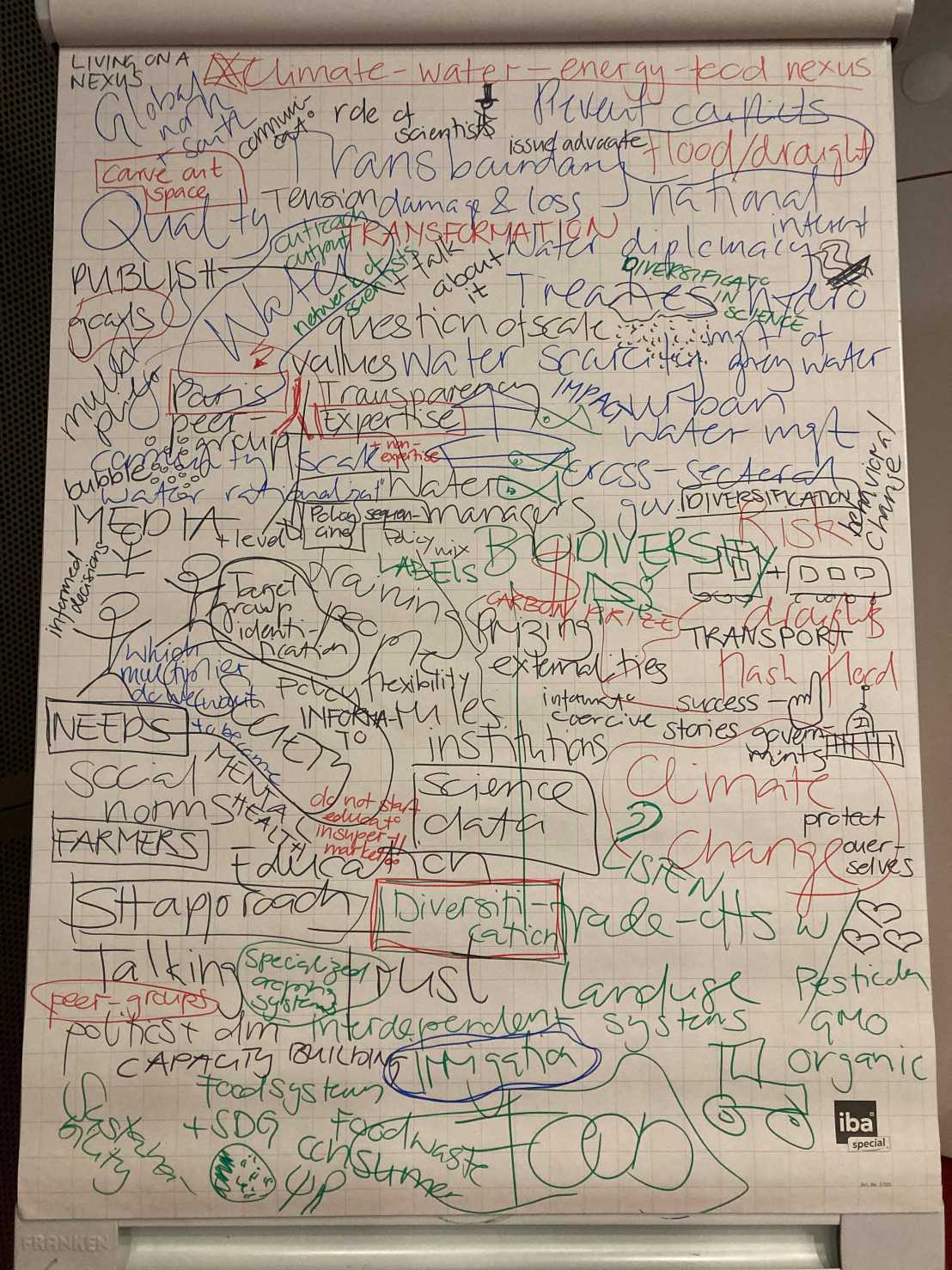
The week was concluded by three round tables in a fish bowl format. The participants voted on the topics, which were chosen to be water distribution, farming systems under climate change, and how to become a multiplier. This format allowed the attendees to freely express their opinions on these topics and bring in the gained knowledge from the week's program.
The statements of the discussion clearly showed that the areas of water, energy, food and climate are closely interlinked and highly complex. We are proud that we were able to provide the young scientists with a broad spectrum of diverse expertise for their further journey and hope that they will be able to use their expanded network in the future to jointly tackle challenges regarding the Nexus.
